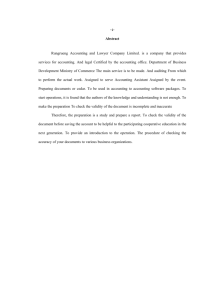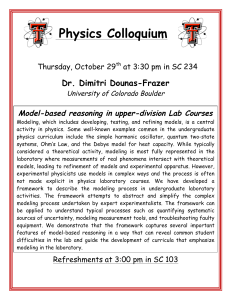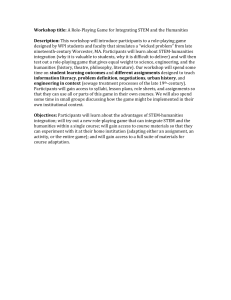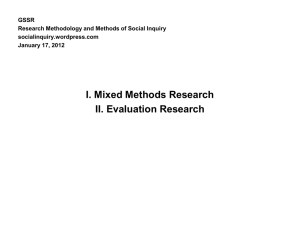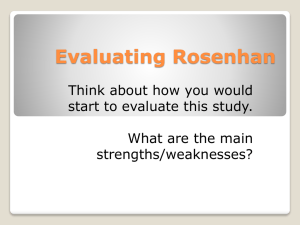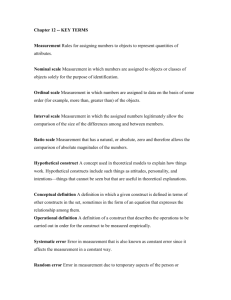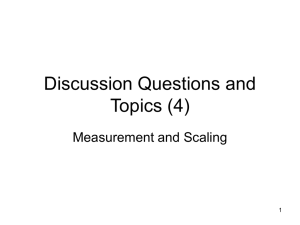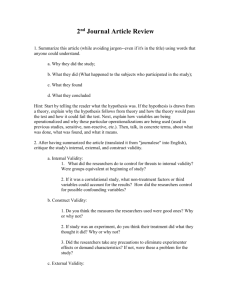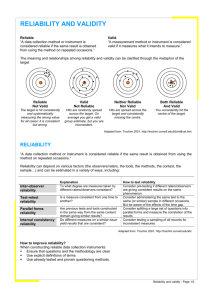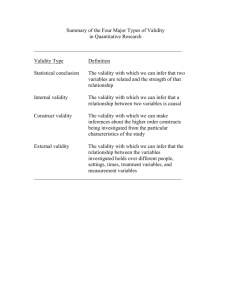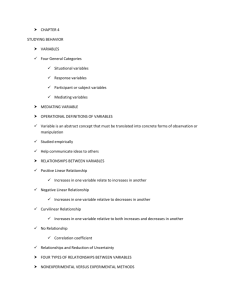Abstract - The Web Center for Social Research Methods
advertisement
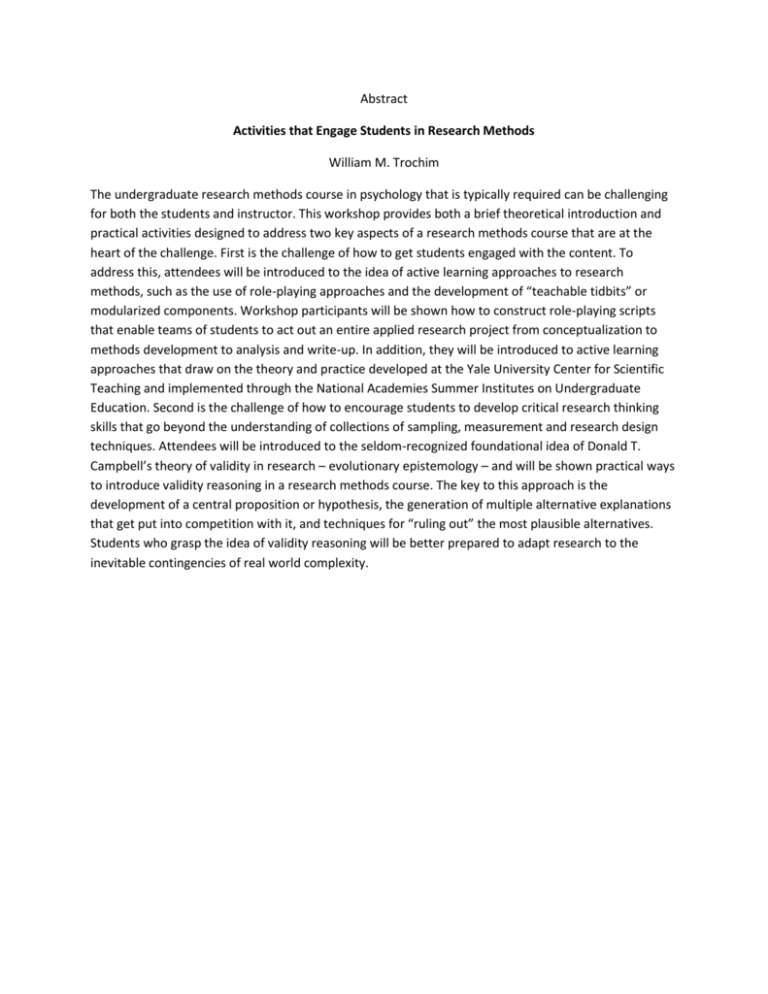
Abstract Activities that Engage Students in Research Methods William M. Trochim The undergraduate research methods course in psychology that is typically required can be challenging for both the students and instructor. This workshop provides both a brief theoretical introduction and practical activities designed to address two key aspects of a research methods course that are at the heart of the challenge. First is the challenge of how to get students engaged with the content. To address this, attendees will be introduced to the idea of active learning approaches to research methods, such as the use of role-playing approaches and the development of “teachable tidbits” or modularized components. Workshop participants will be shown how to construct role-playing scripts that enable teams of students to act out an entire applied research project from conceptualization to methods development to analysis and write-up. In addition, they will be introduced to active learning approaches that draw on the theory and practice developed at the Yale University Center for Scientific Teaching and implemented through the National Academies Summer Institutes on Undergraduate Education. Second is the challenge of how to encourage students to develop critical research thinking skills that go beyond the understanding of collections of sampling, measurement and research design techniques. Attendees will be introduced to the seldom-recognized foundational idea of Donald T. Campbell’s theory of validity in research – evolutionary epistemology – and will be shown practical ways to introduce validity reasoning in a research methods course. The key to this approach is the development of a central proposition or hypothesis, the generation of multiple alternative explanations that get put into competition with it, and techniques for “ruling out” the most plausible alternatives. Students who grasp the idea of validity reasoning will be better prepared to adapt research to the inevitable contingencies of real world complexity.
